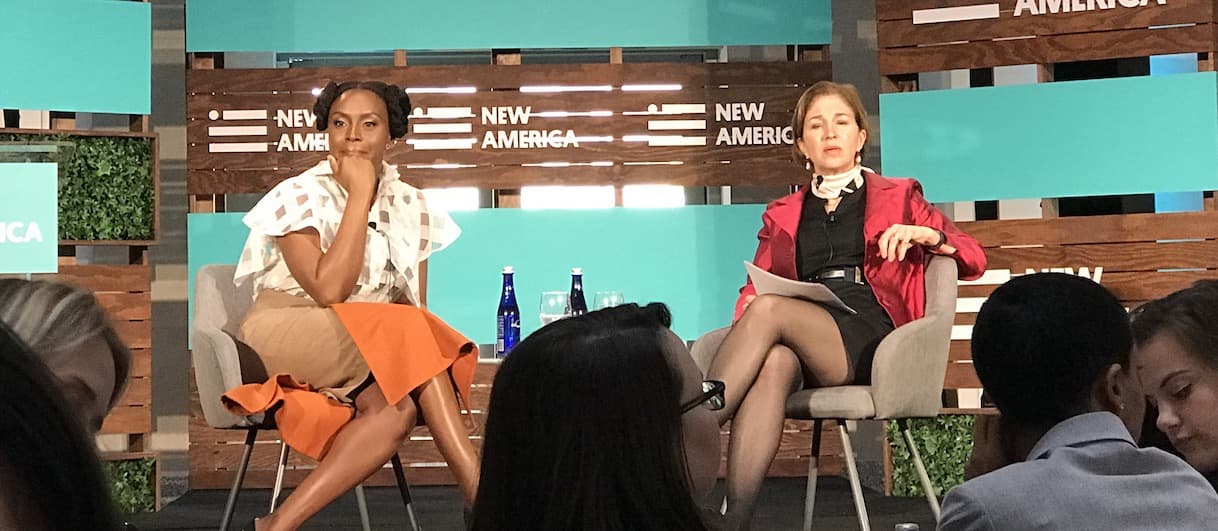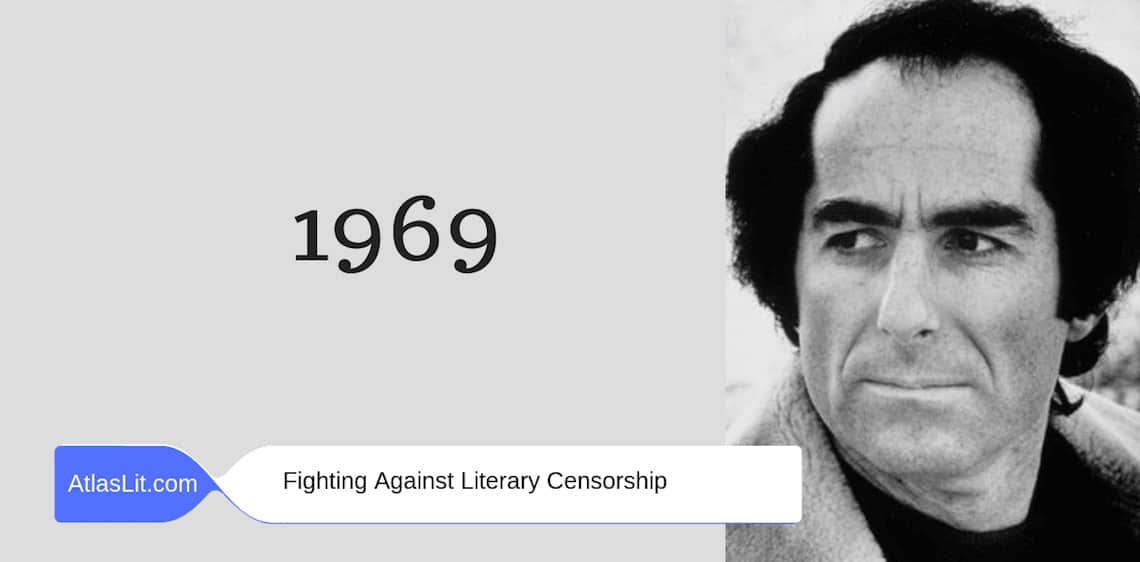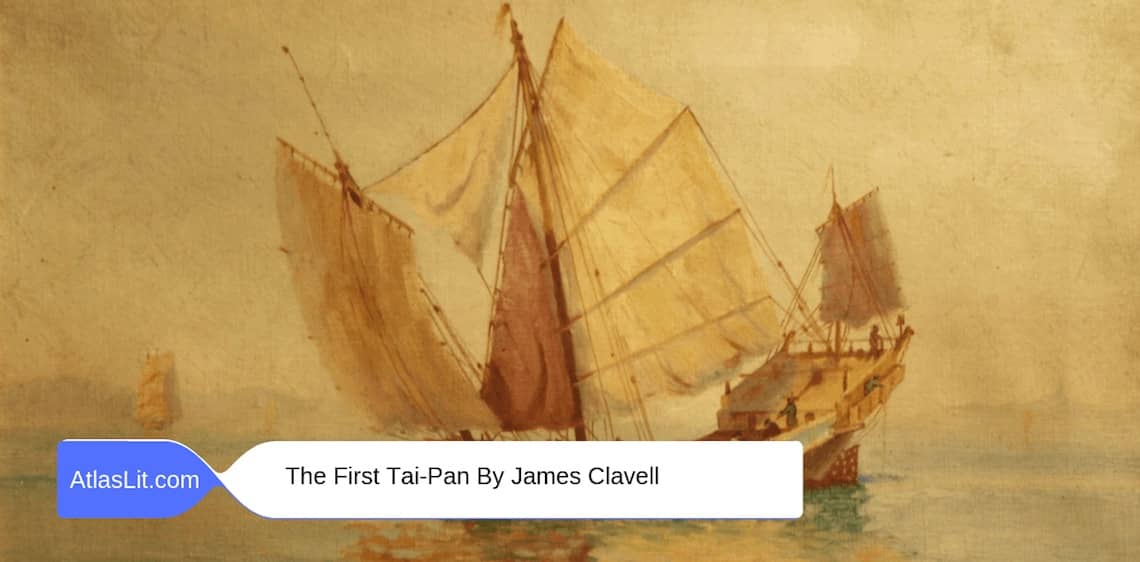
Returning home to Lagos
In a TED Talk called “The Danger of a Single Story,” Chimamanda Ngozi Adichie describes what results in the false opinions we form about individuals, groups, races, cultures, religions, or places.
She talks about her own life to explain how this form of tunnel vision affects our perceptions.
Adichie was born in 1977 in Enugu, in southeastern Nigeria, home of the Igbo people. She grew up in Nsukka, just north of Enugu, a town known as the site of the University of Nigeria.
She studied medicine and pharmacy at the University of Nigeria for a year and a half. At the age of nineteen, she left for the United States. She gained a scholarship to study communications and political science at Drexel University in Philadelphia. She explains her decision to change direction and study in America in an NPR interview.
“And they said to me, oh no, you have to be in the biology and the chemistry and the physics. And so that’s already a track. And so the exam that you take to get into university, you do the sciences, and so to change, you just can’t change. I would have to go and start over, and I just wasn’t prepared to do that, to take the entrance exams again, to – I just – you know, and also I hadn’t been prepared in what they called the arts. So I just couldn’t.
And so really for me America became escape.”
She began her writing career while pursuing her academic career in the USA. She is now a multi-award-winning writer who divides her time between Lagos and Baltimore.
What books are
While growing up in Nigeria, Adichie remembers reading only American and British children’s books. When she started to write at the age of seven, naturally, the stories she wrote were more inspired by Enyd Blyton than by her life in Nigeria, as she explains in her TED talk.
“What this demonstrates, I think, is how impressionable and vulnerable we are in the face of a story, particularly as children. Because all I had read were books in which characters were foreign, I had become convinced that books by their very nature had to have foreigners in them and had to be about things with which I could not personally identify. Now, things changed when I discovered African books. There weren’t many of them available, and they weren’t quite as easy to find as the foreign books.”
She talks about discovering African literature only later and how it saved her from having a single story of what books are:
“… because of writers like Chinua Achebe and Camara Laye, I went through a mental shift in my perception of literature. I realized that people like me, girls with skin the color of chocolate, whose kinky hair could not form ponytails, could also exist in literature. I started to write about things I recognized. “
Where the single story of Africa comes from
If she had not grown up in Nigeria, Adichie says in her TED talk, and if all she knew about Africa were from “popular images,” she would think like her American roommate at University.
“… that Africa was a place of beautiful landscapes, beautiful animals, and incomprehensible people, fighting senseless wars, dying of poverty and AIDS, unable to speak for themselves and waiting to be saved by a kind, white foreigner.”
This is where she believes the single story of Africa comes from.
“This single story of Africa ultimately comes, I think, from Western literature. Now, here is a quote from the writing of a London merchant called John Lok, who sailed to West Africa in 1561 and kept a fascinating account of his voyage. After referring to the black Africans as “beasts who have no houses,” he writes, “They are also people without heads, having their mouth and eyes in their breasts.
Now, I’ve laughed every time I’ve read this. And one must admire the imagination of John Lok. But what is important about his writing is that it represents the beginning of a tradition of telling African stories in the West: A tradition of Sub-Saharan Africa as a place of negatives, of difference, of darkness, of people who, in the words of the wonderful poet Rudyard Kipling, are ‘half devil, half child. “
Reducing the complexity of individuals and the multifaceted aspects of places to a single narrative leads to stereotypical representations.
“Of course, Africa is a continent full of catastrophes: There are immense ones, such as the horrific rapes in Congo and depressing ones, such as the fact that 5,000 people apply for one job vacancy in Nigeria. But there are other stories that are not about catastrophe, and it is very important, it is just as important, to talk about them.
I’ve always felt that it is impossible to engage properly with a place or a person without engaging with all of the stories of that place and that person. The consequence of the single story is this: It robs people of dignity. It makes our recognition of our equal humanity difficult. It emphasizes how we are different rather than how we are similar.”
For Adichie, the problem is political.
“Power is the ability not just to tell the story of another person, but to make it the definitive story of that person. The Palestinian poet Mourid Barghouti writes that if you want to dispossess a people, the simplest way to do it is to tell their story and to start with, ‘secondly.” Start the story with the arrows of the Native Americans, and not with the arrival of the British, and you have an entirely different story. Start the story with the failure of the African state, and not with the colonial creation of the African state, and you have an entirely different story.”
On being black and identity

In her conversation with Hope Reesein in the JSTOR Daily, Adichie described how she perceives the complexities of race and identity that she explores in Americanah:
“… I wasn’t black until I came to America. I became black in America.
Growing up in Nigeria, I didn’t think about race because I didn’t need to think about race. Nigeria is a country with many problems and many identity divisions, but those identity divisions are mainly religion and ethnicity.
So my identity growing up was Christian, Catholic, and Igbo. And sometimes I felt Nigerian in sort of a healthy way, especially when Nigeria was playing in the World Cup. Then I would think about my nationality as a Nigerian. But, when I came to the U.S., it just changed. I think that America, and obviously because of its history, it’s the one country where, in some ways, identity is forced on you, because you have to check a box. You have to be something. And, I came here and very quickly realized to Americans I was just black. And for a little while, I resisted it, because it didn’t take me very long when I came here to realize how many negative stereotypes were attached to blackness.”
After first avoiding blackness, she started reading about African-American history.
“… that really opened my eyes and made me understand what was going on, and what it meant.
And it also made me start claiming this blackness. I went full-circle and started identifying as black. I think it was a political decision; I decided that having understood African-American history, I was a part of it. African-American history doesn’t actually start on the slave ship. It starts in Africa. So in a way, we’re related. But America will label you black anyway––so the things that black people experience, I experience.”
Many migration stories
However, as she explains in her conversation with Hope Reeseinshe, she considers herself as being privileged because:
“… to be a black immigrant from a black majority country is to come with a certain level of confidence. Just growing up seeing black achievement as normal.”
Adichie’s first two novels, Purple Hibiscus and Half of a Yellow Sun, were set in Nigeria. But her third book, Amerikanah, which won the US National Book Critics Circle award in 2014, takes place both there and in the USA.
Amerikanah is many things. It offers a view of Nigerian life and the migratory experience—how it affects relationships, changes personalities and cultural perspectives, and alters identities. It is also a book about feminism and race and what it means to be black in the United States and Britain.
Through the eyes of two bright young Igbo people, Ifemelu, the girl, and Obinze, the boy, who both leave Nigeria for different countries and different reasons, Adichie takes us through the complexity of their migratory stories.
Demystifying the common narrative that migrants are fleeing from natural disasters, persecution, war, or poverty, Americanah presents different migration stories.
What the characters are running away from is what Adichie calls the “lethargy of choicelessness.” Both Ifemelu and Obinze belong to the Nigerian upper middle class. Their decision to migrate is not induced by poverty or war, but by a search for the ability to make choices, choices they could not make in their country.
Obinze, while attending a dinner at a friend’s place during his stay in Britain, feels alienated because his own migration story is different from those generally conveyed. When the guests argue about the importance of offering refuge to survivors of wars and victims of poverty, he ponders:
“… all understood the fleeing from war, from the kind of poverty that crushed human souls, but they would not understand the need to escape from the oppressive lethargy of choicelessness. They would not understand why people like him, who were raised well-fed and watered but mired in dissatisfaction, conditioned from birth to look towards somewhere else, eternally convinced that real lives happened in that somewhere else…none of them starving, or raped, or from burned villages, but merely hungry for choice and certainty.”
Americanah also charts a new return migration story
The common perspective is that immigrants return to their homeland because they are forced to do so, either because of their illegal status, which leads to deportation, or because they failed to build a new life.
In Americanah, Ifemelu’s return migration is not induced by forced repatriation or failed economic success.
For Ifemelu, her return to Nigeria, after thirteen years of living in the US and becoming a successful blogger, is motivated by no other reason than a strong desire to go back home.
“It had been there for a while, an early morning disease of fatigue, a bleakness and borderlessness. It brought with it amorphous longings, shapeless desires, brief imaginary glints of other lives she could be living, that over the months melded into a piercing homesickness. She scoured Nigerian websites, Nigerian profiles on Facebook, Nigerian blogs, and each click brought yet another story of a young person who had recently moved back home, clothed in American or British degrees, to start an investment company, a music production business, a fashion label, a magazine, a fast-food franchise. She looked at photographs of these men and women and felt dull ache of loss, as though they had prised open her hand and taken something of hers. They were living her life. Nigeria became where she was supposed to be, the only place she could sink her roots in without the constant urge to tug them out and shake off the soil.”
Ifemelu deliberately decides to return to Nigeria without worrying about being identified as an “Americanah.” In Nigerian parlance, an Americanah is a person who has lived in America and returned.
At first, the reality of the deplorable conditions of her homeland country comes as a shock for Ifemelu as she takes her first ride through the city of Lagos.
“Ifemelu stared out of the window, … thinking how unpretty Lagos was, roads infested with potholes, houses springing up unplanned like weeds. Of her jumble of feelings, she recognized only confusion.”
She depicts the chaos and confusion of daily life in the city.
“…Lagos assaulted her; the sun-dazed haste, the yellow buses full of squashed limbs, the sweating hawkers racing after cars, the advertisements on hulking billboards… and the heaps of rubbish that rose on the roadsides like taunt. Commerce thrummed too defiantly. And the air was dense with exaggeration, conversations full of over-protestations. One morning, a man’s body lay on Awolowo Road. Another morning, The Island flooded and cars became gasping boats. Here, she felt, anything could happen, a ripe tomato could burst out of solid stone. And so she had the dizzying sensation of falling, falling into the new person she had become, falling into the strange familiar. Had it always been like this or had it changed so much in her absence?”
Ifemelu eventually readjusts and readapts to the cultural and behavioral patterns of her homeland. She also makes this adjustment the theme of the first article in her Nigerian blog, which focuses on the “Nigerpolitan Club,” the society of Nigerians who recently returned from England and the US.
“Lagos has never been, will never be, and has never aspired to be like New York, or anywhere else for that matter. Lagos has always been undisputably itself, but would not know this at the meeting of the Nigerpolitan Club, a group of young returnees who gather every week to moan about the ways that Lagos is not like New York as though Lagos had ever been close to being like New York. …If your cook cannot make the perfect Panini, it is not because he is stupid. It is because Nigeria is not a nation of sandwich-eating people and his last oga did not eat bread in the afternoon. So he needs training and practice. And Nigeria is not a nation of people with food allergies, not a nation of picky eaters for whom food is about distinctions and separations. It is a nation of people who eat beef and chicken and cow skin and intestines and dried fish in a single bowl of soup, and it is called assorted, and so get over yourselves and realize that the way of life here is just that, assorted.”
By that time, Ifemelu is well-grounded as a Nigerian blogger; her sense of self-fulfillment and homeliness indicates she is in Nigeria to stay.
“She was at peace: to be at home, to be writing her blog, to have discovered Lagos again. She had, finally, spun herself fully into being.”
Complement Anericanah by listening to Adichie’s TED talks. Also, read her essay for Esquire, “Still Becoming: At Home In Lagos,” where she reflects on life in Nigeria’s biggest city.


